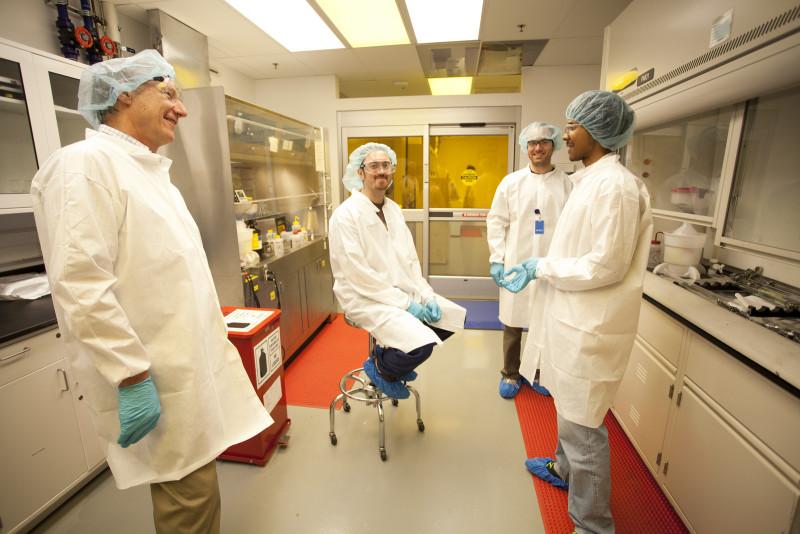
Stephen Forrest was interviewed in Shanghai —Photo by Kelicia Hollis
As the vice president for research at the University of Michigan, Stephen Forrest oversees all of U-M’s research initiatives. He travels widely, assessing science and technology around the world. During a recent visit to Shanghai, Forrest shared his views about Chinese research, collaboration, teaching methods, entrepreneurialism and other issues in this interview with the JI:
JI: Given that the JI’s parent universities are both top engineering schools with a wealth of resources, how can the JI build on these resources and distinguish itself as a unique institute within these schools?
Forrest: Each institution has to figure out what its own culture and history is. And of course that’s one of the things that creates value. The reason why we work with SJTU in research is that Chinese universities, researchers and professors tend to be closer to markets. They work very closely with the industrial sector. In the U.S., we come from a more fundamental perspective. Both of those perspectives are inherently limited and also have inherent strengths. So my feeling is that through this remarkable experiment of the JI and through our research collaboration, both universities learn from each other and they strengthen their own assets in their own way.
What I like about the whole thing is that this unique inter-university partnership was entered into by two very open-minded institutions, which means they’re ready to learn from each other. And I think that’s just going to strengthen both.
JI: Would you say the open-mindedness of the two institutions helps cross-collaborations between SJTU and U-M?
Forrest: Yes. We’ve had a great time with our collaborations. You know the University of Michigan is not into building satellite campuses with bricks and mortar. And I think that’s been an extraordinarily wise choice because I believe it’s still a bit of a fad for universities to build a building somewhere else. It’s all about people. If you can mix up the people in a productive way, and I think the JI does that, then that’s the best way to go.
JI: How can a young institution like the JI promote entrepreneurialism among its faculty?
SF: That’s really a cultural issue. And it’s hard within Michigan, and I’m sure it’s hard within the JI. What you reward is what faculty will do. And if you don’t reward creativity that emerges through working with industry, starting companies, being entrepreneurial, it won’t happen. Faculty won’t do it because they won’t feel like they’re being respected for that part of what they’re doing. And in this, MIT and Stanford are models. They do reward their faculty at an early stage for being entrepreneurial, for starting their companies. What I mean by ‘reward’ is that it’s taken into consideration in the tenure process or in performance reviews. The faculty need to be encouraged. They are told, ‘Oh you’re starting a company. That’s cool.’ Rather than: ‘Oh, you’re starting a company. Don’t you think that will distract you from what your real job is?’And those are two arguments that you’ll get from different institutions and within different departments in the same institution.

Stephen Forrest visits a lab for researching devices related to electronic materials and optics at the University of Michigan.
—Photo by James M Rotz
JI: What’s the best way to improve the way we teach research methods so that our students will be leaders in their research fields?
SF: I think that one has to shift from a teaching perspective to a learning perspective. Learning is a very important part. So how do we stop throwing information at our students, trying to drill holes in their heads and pouring facts in? How do we get them to experience? In another part of my wanderings around the globe, I spent nearly 15 years as a professor at Princeton. Princeton has a very short semester, and that was a real challenge for me. But I found that I became a really good teacher at Princeton because it had a shorter semester. I had to focus more on teaching less. The less I taught, the more people learned because they weren’t so overwhelmed by facts. They actually had to learn principles and concepts. I had to completely shift my way of teaching.
Follow Forrest’s blog: http://research.umich.edu/blogs/vpr/
